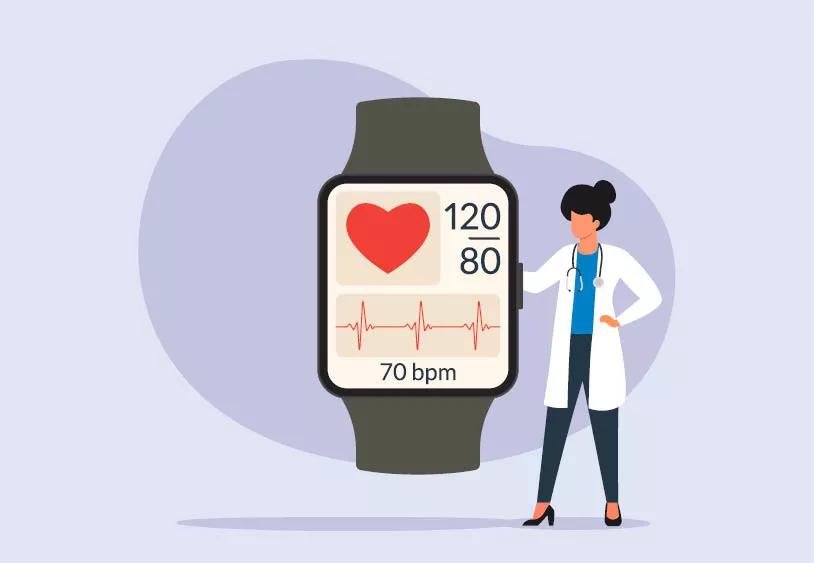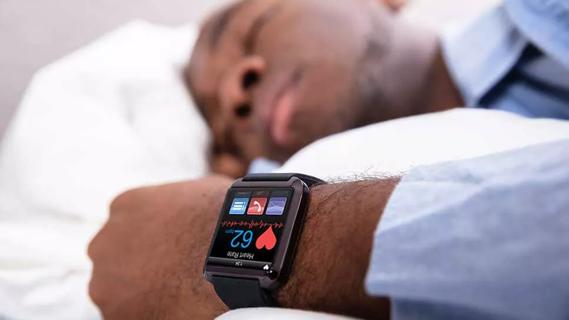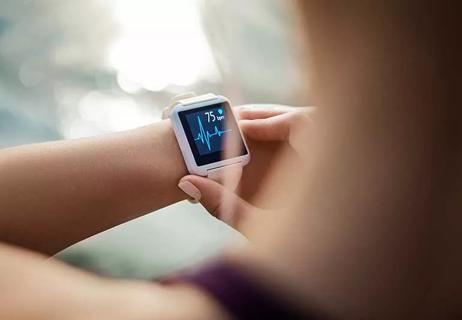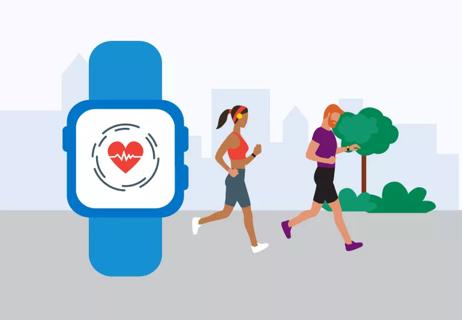Both are related to your cardiovascular system, and both can impact the other

Blood pressure and heart rate go hand-in-hand in most people’s minds. After all, these two vital signs are usually measured at the same time at your doctor’s office.
Advertisement
Cleveland Clinic is a non-profit academic medical center. Advertising on our site helps support our mission. We do not endorse non-Cleveland Clinic products or services. Policy
But each measures distinctly different factors related to your heart health.
Cardiologist Luke Laffin, MD, explains some key differences — and busts some common myths along the way.
When you think about heart rate and blood pressure, your mind probably goes straight to your ticker in your chest. And while both measurements are related to your cardiovascular system, they play different roles.
Heart rate — sometimes called pulse — is the number of times your heart beats every minute. Changes in your heart rate can be influenced by factors like physical activity, emotions and medications.
Blood pressure is the force of blood flowing against the walls of your arteries. Your blood pressure values indicate the health of your cardiovascular system and can give insight into conditions like hypertension (high blood pressure) or hypotension (low blood pressure).
Your heart rate and blood pressure can impact each other in different ways. You can usually see this when your heart rate or blood pressure is experiencing extremes — either very high or low.
“It is true that blood pressure and heart rate often rise and fall together,” Dr. Laffin says. When you face danger, for example, your blood pressure and pulse may both jump upward at the same time. But Dr. Laffin also notes that if your heart rate rises, that doesn’t automatically mean your blood pressure will rise — or vice versa.
Advertisement
“When the two are disconnected, you may be looking at a specific problem,” he says. “For example, if you are dehydrated, bleeding or have a severe infection, blood pressure typically decreases and heart rate increases.”
To measure your resting heart rate and blood pressure, pick a reliable and reproducible time, Dr. Laffin advises. Ideally, check in the morning before medications and occasionally in the evening, around dinner time. Don’t take your readings right after exercising — unless you’re trying to establish a baseline for what’s called active blood pressure and heart rate.
During readings, you want to be in a resting position with your legs uncrossed. Many people don’t realize that crossing your legs while taking a reading may cause an eight- to 10-point increase in systolic blood pressure.
Which measure is more important? This depends on your health, too. For people with atrial fibrillation, heart rate might be more important to watch, but many other heart diseases depend more on blood pressure. To be safe, measure both.
“Almost all automated kits you buy at a store provide blood pressure and pulse on one readout,” Dr. Laffin says. “It’s convenient — and knowing both numbers helps better understand how to make lifestyle and medication adjustments.”
Here are some other things you may not know about the relationship between heart rate and blood pressure.
Myth: There are guidelines, but what’s normal varies from person to person. In general, a normal blood pressure ranges between less than 120 mm Hg systolic — which is the pressure as your heart beats — and less than 80 mm Hg diastolic — which is the pressure as your heart relaxes. For your resting heart rate, the target is between 60 and 100 beats per minute (bpm).
Keep in mind that heart rate and blood pressure are a customized fit. You need to work with your doctor to establish a baseline that’s normal for you.
Myth: What’s healthy for one person may indicate danger for another. For example, a fit person may have a resting heart rate in their 50s or, in some cases, even their 40s. “It can actually be a sign of being in really good shape,” Dr. Laffin says.
Low blood pressure can be a bit trickier, especially in older people and those with heart disease. If you’re in danger from low blood pressure, your body will tell you.
“It’s really about how you feel,” Dr. Laffin says. “Are you feeling weak? The numbers on their own don’t tell the story; it’s the numbers paired with the symptoms you may have.”
Truth: Again, what’s considered normal varies. But Dr. Laffin says there’s enough clinical evidence to suggest that when blood pressure is even a little above your typical average over time, the risk for heart disease and stroke goes up. The physical effects of high blood pressure take their toll on your blood vessels.
Advertisement
“Essentially, for each increment of 20 mmHg over 115 mmHg systolic, your risk of heart attack, stroke, heart failure or chronic kidney disease doubles,” Dr. Laffin states.
Elevated heart rate can be a sign of danger, too, but the cause-effect relationship isn’t so clear. “Studies show that people who have faster baseline heart rates are more likely to have cardiac problems and premature cardiac death,” he adds.
“But we’re not sure whether that is the cause of the problem or just a sign of what’s going on. The most common cause of a high resting heart rate is being deconditioned (in other words, out of shape).”
Truth: In a large study of people going for a health checkup, those who had a high-normal resting heart rate of 80 bpm to 90 bpm had a 40% shorter lifespan than those with a lower heart rate of 60 bpm to 69 bpm.
But the good news is that 15 to 30 minutes of daily moderate exercise, such as brisk walking, could eliminate the increased mortality and reverse the life-span loss, according to the researchers.
The study underlines the important role that physical activity can play in keeping your heart healthy — and giving you a longer life.
“Even moderate activity has benefits,” Dr. Laffin emphasizes. “So, there is no longer any reason to stay on the couch.”
Advertisement
Your heart rate and blood pressure are different, but both play important roles in your body’s health. It’s important to know how to read your heart rate and blood pressure and take note when either one is getting too high or too low.
Your healthcare provider will usually check both of these vitals during yearly appointments, but make sure to let them know if you notice any sudden changes in your heart rate or blood pressure.
Advertisement

Sign up for our Health Essentials emails for expert guidance on nutrition, fitness, sleep, skin care and more.
Learn more about our editorial process.
Advertisement

Your pulse and heart rate measure different body processes, but in most cases, they’re the same number

Deep breathing, yoga and meditation are just some ways to bring your heart rate down right away

Lifestyle changes can help strengthen your heart so it doesn’t have to work as hard when your body is at rest

A resting heart rate below 35–40 beats per minute or over 100 beats per minute may be cause for concern

Your heart rate naturally slows down while you sleep, but lower numbers aren’t always concerning

60 to 100 beats per minute is ‘normal,’ but you can still be healthy outside that range

Bradycardia, or a low heart rate, is more likely as you age — and could be a sign of health issues

Setting a max heart rate for kids can be tough, so focus more on how they feel during activity

Even small moments of time outdoors can help reduce stress, boost mood and restore a sense of calm

A correct prescription helps your eyes see clearly — but as natural changes occur, you may need stronger or different eyeglasses

Both are medical emergencies, but they are very distinct events with different causes